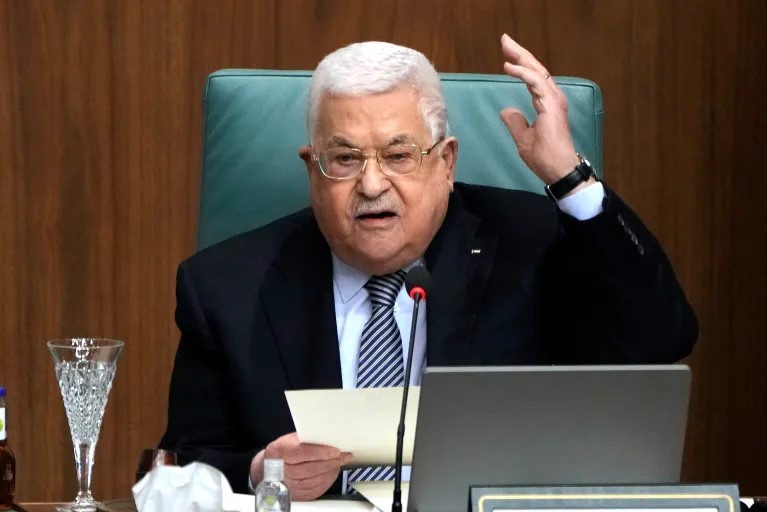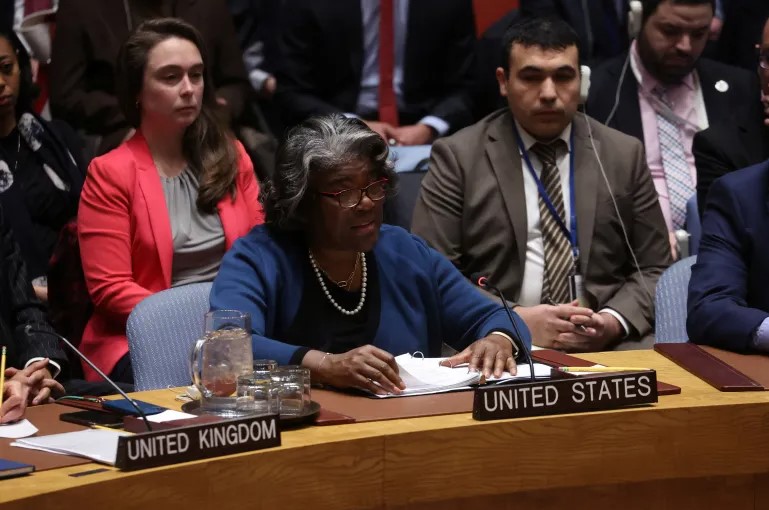The UN Security Council (UNSC) has approved a resolution to support the ceasefire proposal outlined by US President Joe Biden on May 31st. The resolution passed with 14 votes in favour, with Russia abstaining from the vote. The ceasefire, to be done across three phases, has the potential to lead to an end of the war, however has seen opposition from Israeli authorities, making it unclear if the ceasefire will truly be enacted.
A Resolution Passed
On May 31st, President Biden announced a ceasefire plan he presented as Israeli proposed. As mentioned, this ceasefire is to take place in three phases.
The first phase “immediate, full, and complete ceasefire with the release of hostages including women, the elderly and the wounded, the return of the remains of some hostages who have been killed, and the exchange of Palestinian prisoners.” The first phase would last approximately six weeks, and also would see a partial withdrawal of Israeli forces from Gaza, as well as a massive expansion of aid entering the Gaza Strip in order to alleviate the ongoing crisis.
Completing the first phase would be further negotiations in order to bring about the second phase. The resolution added language that the ceasefire will continue past six weeks if negotiations to establish phase two take longer than the allotted time.
Phase two, perhaps the most notable, would include a complete halt to the war “in exchange for the release of all other hostages still in Gaza, and a full withdrawal of Israeli forces from Gaza.”
Phase three includes a “major multi-year reconstruction plan for Gaza,” as well as the return of the remains of any hostages that had not yet been returned.
The resolution passed today by the UNSC further included an opposition to any demographic or territorial change, and further expressed support for “unifying the Gaza Strip with the West Bank under the Palestinian Authority.”

While Biden presented this ceasefire as Israeli proposed, Israeli officials expressed opposition to certain aspects of what Biden had outlined, notably the permanence of a ceasefire prior to the “destruction of Hamas.” The entire dismantling of Hamas, both militarily and politically, has been a publicly stated war goal of Israel’s since the beginning of the war. As such, Prime Minister Benjamin Netanyahu’s office released a statement saying that any permanent ceasefire that comes before this event, the destruction of Hamas, would be a “non starter.”
Further, Netanyahu and his government have publicly opposed the establishment of a Palestinian state, as well as any Palestinian Authority takeover of Gaza, putting Israeli officials in opposition to the provision of todays resolution which calls for a unification of Gaza with the West Bank under the Palestinian Authority. Netanyahu has additionally stated that Israel will hold its own security over Gaza, putting him in opposition to the provision that opposes any territorial change.
Regardless, Israeli authorities stated their willingness to negotiate on a proposal, and that they had agreed to a “framework.”
Hamas initially stated they viewed the proposal positively, but did not issue an outright acceptance of the deal.
The US Ambassador to the UN, Linda Thomas Greenfield, stated after today’s resolution that “the fighting could stop today if Hamas agrees to the deal now endorsed by the Security Council,” and continued to say that, should Hamas accept the deal, that the US will ensure Israel lives up to its obligations under the deal.

Following the passage of today’s resolution, Hamas issued a statement in which they stated that they “welcome” the provisions established, adding that they wish to emphasize their “readiness to cooperate with the mediators to engage in indirect negotiations on implementing these principles.” Their full statement may be read below:
Press Statement
The Islamic Resistance Movement (Hamas) welcomes what is included in the Security Council resolution that affirmed the permanent ceasefire in Gaza, the complete withdrawal, the prisoners’ exchange, the reconstruction, the return of the displaced to their areas of residence, the rejection of any demographic change or reduction in the area of the Gaza Strip, and the delivery of needed aid to our people in the Strip.
Hamas emphasizes its readiness to cooperate with the mediators to engage in indirect negotiations on implementing these principles that are consistent with the demands of our people and resistance.
We in the Hamas Movement also stress continuation of our endeavor and struggle with all our people to achieve their national rights, foremost of which is defeating the occupation and establishing their independent and full sovereign Palestinian state, with Jerusalem as its capital, along with the right of return and self-determination.
Islamic Resistance Movement – Hamas
June 10, 2024
Notably, their statement again falls short of an outright acceptance of the deal.
Israeli authorities have yet to deliver an official response regarding the UN’s resolution, though Alon Liel, the former director of the Israeli Ministry of Foreign Affairs, stated that the Israeli government has been “taken by surprise” by the resolution.
Again notable is that the resolution has passed while US Secretary of State, Antony Blinken, is presently in Israel meeting with Netanyahu and other prominent Israeli officials, where the resolution is likely being discussed. This is Secretary Blinken’s eighth trip to Israel since the war began on October 7th.
Prime Minister Benjamin Netanyahu is currently meeting with US Secretary of State Antony Blinken, at the Prime Minister's Office in Jerusalem.https://t.co/smWD69Baed pic.twitter.com/YoMXIXbVaW
— Prime Minister of Israel (@IsraeliPM) June 10, 2024
The resolution calls for both parties to implement its terms “without delay and without condition.” Netanyahu had previously stated, in several instances, that “no international decision” will halt Israel’s war effort, and so only time will tell if both Israel and Hamas adhere to the resolution established.
Technically UNSC resolutions are binding for member states, however it has few means of legitimate enforcement, and a number of its resolutions have been ignored in the past. One such instance was in March, when on March 25th the UNSC passed a resolution calling for a ceasefire for the remainder of Ramadan, which ended on April 9th. Despite the resolution, the war continued.
The fact that this resolution was US proposed is particularly significant. The US had previously vetoed several attempts at passing a resolution calling for a permanent ceasefire in the UNSC, and so the present resolution, which, of course, calls for a permanent ceasefire originating from the US is a big step.
The course of the war has seen a small but noticeable drop in the US’ support for Israel, with evidence that both nations hold drastically different ideas for the war, as well as a post war setting, making itself very clear.


